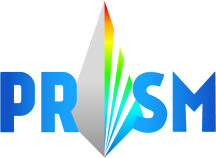
When Do Autism Symptoms Start? Key Signs And Timelines
Do you think your child might have autism? If you’ve noticed developmental delays related to speech, motor skills, and social skills, you may be wondering if your child has autism spectrum disorder. It’s common to feel worried during this uncertain time and start going down a Google rabbit hole. Your search history might include, “When do autism symptoms start?” and “What are the early signs of autism in children?” If this sounds like you, know that you’re not alone.
Recognizing the onset of autism symptoms is important for parents and caregivers on this journey. Fear of the unknown is often the worst part of it all. At PRISM Learning Center, we’re here to quell your worries. We understand how anxious you may be feeling and we’re here to offer the insight, support, and guidance you need for what lies ahead.
The first thing to note is that Autism Spectrum Disorder (ASD) is a developmental condition that can show up in a number of ways. It’s true that symptoms often emerge in early childhood, which is why you’re right to start asking these questions if you’ve noticed certain delays. In this post, we’ll go into the details of many signs and timelines related to the onset of autism symptoms. Having this information should help you identify what to look for as your child develops.
The Basics of Autism Spectrum Disorder
Autism spectrum disorder (ASD) can include a plethora of developmental disorders that affect communication, behavior, and social skills. The symptoms can differ quite a bit in severity and presentation.
Although some children may display symptoms as early as infancy, others might not be diagnosed until later in childhood. Early intervention through programs like those offered at an ABA learning center can largely improve developmental outcomes but it’s never too late to get started.
Early Signs of Autism in Infants
Parents might notice early signs of autism in infants, usually between 6 to 12 months of age. These early indicators can include a lack of eye contact, limited smiling, and decreased responsiveness to social cues.
Infants with autism may not react to their names being called or may show little interest in engaging with caregivers. Noticing these behaviors could indicate that there’s something else going on beyond basic development delays.
Developmental Milestones: 12 to 24 Months
As children approach their first birthday, the signs of autism may become more pronounced. By 12 to 24 months, children usually begin to take part in simple social interactions, like waving goodbye or pointing to share their interests.
Children with autism, however, might not demonstrate these behaviors. Instead, they may exhibit repetitive behaviors, like rocking or spinning objects, and may have a limited range of interests.
Communication Delays
Communication is a basic area where autism symptoms often become evident. By the age of 2, most children can say a few words and begin forming simple sentences.
In contrast, children with autism may experience delays in speech development, often using echolalia—repeating words or phrases they have heard without understanding their meaning. If you notice distinct delays in your child’s language skills, it may be time to speak with a healthcare professional.
Social Interactions: The Age of 2 to 3
Between the ages of 2 and 3, social interactions usually become more complicated. Children start to engage in parallel play, where they play alongside but not directly with other children.
Children with autism, however, may struggle with this social milestone, preferring solitary activities over interactive play. They may also exhibit difficulties grasping social norms, leading to challenges in forming friendships.
Signs of irregular development during this stage can include a lack of interest in peer interactions and difficulties in comprehending or expressing emotions. These challenges may point to the need for evaluation and possible intervention.
Signs in Preschool-Aged Children
By preschool age (3 to 5 years), the signs of autism will likely be more apparent. Many children develop specific interests or routines, but children with autism may display intense focus on particular topics or objects. This fixation can overshadow their ability to participate in more flexible play or explore new activities.
Overall, preschool-aged children with autism may show a marked preference for routines and may react negatively to changes in their environment. If your child exhibits extreme anxiety in new situations or struggles with transitions, these behaviors can be red flags.
The Part Played by Diagnostic Tools
Healthcare professionals use a variety of diagnostic tools to evaluate autism symptoms. The Autism Diagnostic Observation Schedule (ADOS) and the Autism Diagnostic Interview-Revised (ADI-R) are frequently utilized to assess social and communication skills, along with repetitive behaviors. These assessments can provide insight into whether a child meets the criteria for an autism diagnosis.
Parents also play a major role in the assessment process by bringing detailed observations about their child’s behavior and development. An early diagnosis can lead to customized interventions at an ABA learning center, focusing on improving communication, social skills, and behavioral outcomes.
The Importance of Early Intervention
Identifying the signs of autism early on can lead to huge benefits through early intervention programs. Children who receive early behavioral intervention most often experience improvements in communication, social skills, and overall functioning.
Programs based on Applied Behavior Analysis (ABA) are particularly effective. They use evidence-based strategies to promote positive behavior and reduce challenges.
Parents are encouraged to get support from healthcare professionals if they suspect their child may be exhibiting signs of autism, as early intervention can make a big difference in a child’s development.
Monitoring Developmental Progress
Parents should closely monitor their child’s developmental progress, especially during the critical early years. Using milestone checklists can be a helpful tool in this process. These checklists outline typical developmental skills, including language, social interactions, and motor skills, which can guide parents in recognizing any delays.
If a child is not meeting expected milestones, consult a pediatrician or a specialist in developmental disorders. Early referral to an ABA learning center can kick-start appropriate interventions and therapies specific to the child’s needs.
The Age of Diagnosis
While the diagnosis of autism spectrum disorder can occur as early as 18 months, many children are diagnosed around 2 to 3 years of age. Earlier diagnoses are possible, but it’s important not to jump to conclusions too soon. Keep in mind that there tends to be some variability in when parents notice symptoms versus when professionals confirm a diagnosis.
It is not uncommon for parents to have concerns for several months before pursuing an evaluation. Being proactive in receiving guidance and support is highly recommended for families working through this process.
Handling Family Dynamics
Families of children with autism have several things to consider. The emotional, physical, and financial impacts can be considerable as families deal with diagnosis, treatment, and ongoing support.
Support groups and resources available through ABA learning centers can give invaluable information and encouragement to families. Connecting with others who have similar experiences can help ease feelings of isolation and give insights into the journey of supporting a child with autism.
The Long-Term Impact of Early Intervention
Remember that early intervention can greatly influence a child’s long-term development and quality of life. Children who receive timely support most often exhibit boosted cognitive abilities, improved social skills, and better emotional regulation as they grow.
When parents act promptly upon observing early signs of autism, they set the stage for a more favorable trajectory in their child’s development.
Overall, early intervention tends to reduce the pressures on families, providing them with resources and strategies to support their child’s unique needs. In an ABA learning center, trained professionals work closely with families, creating individualized plans that target specific developmental goals.
A collaborative approach not only benefits the child but also supplies parents with knowledge and skills to encourage their child’s growth in everyday situations.
Surviving Autism with Support
Having an answer to “When do autism symptoms start?” and knowing all the signs can help parents and caregivers take proactive steps for their child’s development. At PRISM Learning Center, we are committed to improving the quality of life for individuals on the autism spectrum.
We recognize the impact autism can have on families and the importance of early intervention in promoting successful outcomes. Our team is dedicated to supporting learners and their families throughout their journey.
For personalized assistance and guidance, please call us at 973-5588-0105 or use our online form to reach out. Together, we can create a path towards a brighter future for your child.
